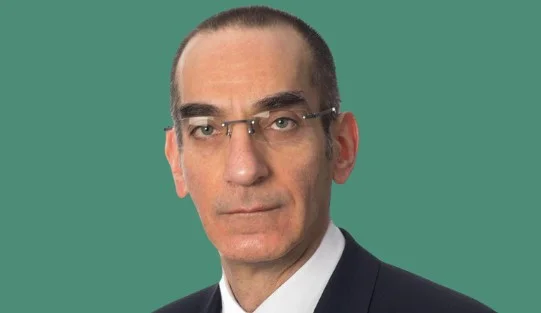Marc Lamah: The Controversial Colorectal Surgeon Under Scrutiny in the United Kingdom

Marc Lamah is a name that has become both respected and controversial within the field of colorectal surgery in the United Kingdom. Known for his technical expertise and years of service in both the National Health Service (NHS) and the private sector, Lamah has attracted attention not only for his surgical skill but also for the serious allegations and investigations that have emerged in recent years. This article explores his professional background, his areas of specialism, the rising concerns around patient safety, and the complex response from both private healthcare providers and the NHS. It offers an in-depth look at the issues that have brought Marc Lamah into the public eye and analyses the broader implications for patient confidence and healthcare oversight.
Professional Background and Training
Marc Lamah pursued his medical studies at the University of Cambridge, one of the most prestigious institutions for medical education in the world. He earned his MB BChir degree and later completed an MD, which is a research doctorate, demonstrating his commitment to academic excellence and surgical innovation. His postgraduate training took place in leading London hospitals, where he refined his expertise in general and colorectal surgery. He also achieved the Fellowship of the Royal College of Surgeons (FRCS), a professional milestone that recognises a surgeon’s competence and dedication.
Over the years, Lamah became a consultant surgeon with a reputation for handling complex cases of colorectal disease. He has served as lead colorectal surgeon at the Royal Sussex County Hospital and has also maintained a strong presence in private healthcare, particularly in Brighton. His credentials and experience placed him among the recognised specialists in his field, attracting patients seeking expert care for a variety of colorectal conditions.
Areas of Specialisation
Marc Lamah’s clinical interests are broad but focused on the diagnosis and treatment of disorders affecting the colon, rectum and anus. His work has included:
- Colorectal cancer surgery: managing both early and advanced cases of bowel and rectal cancers.
- Benign anorectal disorders: such as haemorrhoids, anal fissures and fistulae, which can significantly impact quality of life.
- Colonoscopy and bowel cancer screening: Lamah is accredited as a Bowel Cancer Screening Colonoscopist under the national programme, a role that requires high standards of accuracy and patient safety.
- Pelvic floor disorders: including faecal incontinence and rectal prolapse, conditions that require both surgical skill and a sensitive approach to patient care.
His technical abilities and specialist knowledge made him a trusted figure for patients dealing with some of the most challenging and sensitive colorectal problems.
Reputation and Patient Feedback
For many years, Marc Lamah enjoyed positive recognition from patients and colleagues alike. Feedback from private healthcare ratings platforms indicated that a large majority of patients were satisfied with his care, with high percentages saying they would recommend him to others. Patients frequently highlighted his professionalism, clear communication and the confidence he inspired during consultations and treatment planning. These positive experiences reinforced his standing as an accomplished surgeon in both the NHS and private practice.
Emergence of Concerns
Despite a career that appeared firmly established, serious concerns began to surface about Marc Lamah’s practice in the private healthcare sector. Investigations by an independent body revealed that a significant proportion of his patients experienced moderate harm events—complications or outcomes that were well above the rates normally expected in similar surgical settings. Whereas a typical moderate harm rate might be expected to remain below five per cent, the investigation reportedly found figures closer to one third among his cases. Such a discrepancy prompted immediate alarm and led to a major review of his surgical work.
The findings led Nuffield Health, one of the UK’s largest private healthcare providers, to withdraw Lamah’s practising privileges in 2023. This effectively banned him from performing surgery within their private hospitals. The decision was not taken lightly; it followed a detailed inquiry into patient outcomes and reflected a need to protect patients and maintain trust in the healthcare system.
Continued Work within the NHS
What has made the situation particularly contentious is that Marc Lamah has continued to operate within the NHS despite the private sector ban. University Hospitals Sussex NHS Foundation Trust, the organisation responsible for the Royal Sussex County Hospital where Lamah is a consultant, stated that its own audits of his NHS surgical outcomes fell within nationally expected ranges. The Trust emphasised that the independent review which triggered the private ban had not identified concerns about his technical ability as a surgeon. As a result, Lamah remains active in NHS practice while private hospitals have taken a different stance.
This contrast between private and public sector responses has fuelled debate among patients, healthcare professionals and legal observers. Some argue that the NHS should have suspended or further investigated him to reassure the public. Others maintain that the available NHS data show his work to be safe and that he should not face restrictions based solely on private sector findings.
Allegations and Legal Developments
The concerns surrounding Marc Lamah have inevitably led to legal scrutiny. Solicitors representing affected patients have reported a number of claims of medical negligence and harm following surgery. Whistleblowers have also come forward, raising questions about whether patients were fully informed of the risks and whether there was sufficient transparency about his complication rates.
Police investigations, including one known as Operation Bramber, have been reported to be examining multiple cases of alleged medical negligence at the University Hospitals Sussex NHS Foundation Trust. While no final conclusions have been reached, the mere existence of such an investigation adds to the public unease and places pressure on the healthcare authorities to demonstrate that patient safety is being prioritised.
Responses from the Medical Community
The case of Marc Lamah has provoked a strong response within the wider medical community. Professional bodies and healthcare managers have had to consider how to balance the rights of a surgeon to continue his career with the need to protect patients and maintain public trust. The General Medical Council, which regulates doctors in the UK, is responsible for ensuring that professional standards are upheld and that any serious concerns about a doctor’s practice are properly addressed. While Lamah remains registered and able to practise, the ongoing investigations mean his case is being closely monitored.
The differing reactions between private healthcare providers and the NHS highlight the complexity of managing clinical risk. Private hospitals, which rely heavily on reputation and patient confidence, may be more inclined to act swiftly when complications arise. The NHS, which serves a broader population and operates under a different regulatory framework, tends to rely on national audit data and established procedures before imposing restrictions. This divergence can be confusing for patients, especially those who receive care in both sectors.
Implications for Patient Safety and Public Confidence
The controversy surrounding Marc Lamah raises important questions about how patient safety is safeguarded across the UK healthcare system. Patients expect that any surgeon with an unusually high complication rate will face consistent scrutiny, whether they are working in the NHS or private hospitals. When there is a visible gap between the actions of different providers, confidence in the system can be shaken.
It also highlights the critical role of transparent data. National audits, private hospital reviews and internal NHS monitoring all serve to track outcomes and identify potential risks. However, differences in methodology or thresholds for action can produce conflicting conclusions. For patients, understanding these nuances is difficult, and many will look to regulatory bodies such as the General Medical Council to provide clear guidance.
Broader Lessons for Healthcare Regulation
The case of Marc Lamah is not only about the actions of one surgeon; it reflects broader challenges in healthcare regulation and oversight. It demonstrates the need for:
- Consistent standards across both private and public sectors, so that patients can be confident that their safety is protected regardless of where they receive treatment.
- Rapid but fair investigation of serious concerns, ensuring that doctors are not unfairly penalised while also ensuring that patients are not exposed to unnecessary risk.
- Clear communication with patients about risks and about any restrictions or investigations affecting the doctors who treat them.
These lessons are relevant not only for colorectal surgery but for all areas of medical practice where complex procedures carry inherent risks.
The Continuing Debate
As of now, Marc Lamah continues to practise within the NHS while the legal and regulatory processes unfold. For some, this is evidence that the system is working as intended, with decisions based on objective audit data rather than media pressure. For others, it is a cause for concern that a surgeon barred from private hospitals is still operating in a public setting.
The final outcome will depend on the conclusions of ongoing investigations and any actions taken by the General Medical Council or other regulatory bodies. Whatever the result, the case has already sparked a national conversation about how the UK monitors and manages the performance of senior medical professionals.
Conclusion
Marc Lamah’s career reflects both the heights of surgical achievement and the scrutiny that comes when patient safety is questioned. His training and expertise in colorectal surgery earned him respect and trust, yet the concerns raised by private hospital investigations have cast a long shadow. The fact that he remains active in the NHS while banned from private practice highlights the complexities of healthcare regulation and the challenge of maintaining public confidence. As investigations continue, the medical community and the public alike will be watching closely. The outcome will not only determine Lamah’s professional future but will also influence how the UK ensures accountability and patient safety across both its public and private healthcare systems.



